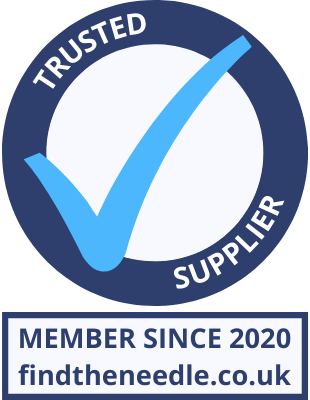 Add My Company
Add My Company
Sign In

If you’re working in special processes and looking to supply into aerospace, there’s a good chance you’ve started looking at gaining your NADCAP accreditation. In this article, we’ll help you answer what is NADCAP accreditation? How to manage the NADCAP accreditation process? How long does it take to get NADCAP accreditation? And much more.
So, what is NADCAP? According to the Performance Review Institute (PRI), 85% of NADCAP accredited companies report a measured improvement in quality as a result of gaining accreditation, and over half of NADCAP accredited companies report that it has helped to increase sales and/or attract new business.
But gaining accreditation is known to be a time consuming and rigorous process with many challenges, which can be off-putting to some companies looking to supply into the aerospace sector. We spoke to our NADCAP approved customers, asking them what the biggest challenges they faced during the process, and how they overcame them.
1. Long and Intensive Process
Gaining NADCAP accreditation does not occur overnight. The Performance Review Institute (PRI) suggests starting the preparations at least 6-9 months in advance. So it takes a while.
Many of our customers also highlighted that the process is incredibly intense. Not only for those in quality management, but for the entire workforce. Neil Hobbs, Quality Manager at Poeton explained that “the audit process itself is a stressful 5 days and needs a lot of support from personnel within the factory”.
With these issues, getting the right processes in place and implementing them throughout the company is very time consuming and requires the full attention of everyone involved.
Solution: Plan accordingly
Creating a plan for your audit can help your company cope with the intense demands. With a thorough plan in place, the mountain of tasks become more manageable, and the load can be shared throughout the workforce, to those best qualified. See our blog How to prepare for your NADCAP audit.
2. Having the Right Team
Shortage of skills is an ongoing issue throughout the manufacturing industry.
Having the right people within your company to help complete the audit is a huge challenge while trying to balance cost and responsibilities. Robert Harrison, Quality Manager at King and Fowler shared “the auditors are the main technical experts, so we need to ensure we have the right people in place to support at the audits”. So it’s not just that your internal auditors and quality team need to be educated about NADCAP, but key people in teams across each department. If the right people aren’t in place, the company could be under-qualified for the task and overwhelmed with the amount of work, leading to non-conformance.
Solution: Standardise Ways of Working
Work with your most experienced employees to set up standardised best practices and ways of working. Embed that throughout your business and teach those practices to your employees. Neil Hobbs at Poeton, highlighted that “An ERP system is crucial to any NADCAP accredited company in demonstrating compliance”.
Also, the right ERP or Production Control system can embed robust gated processes that don’t allow users to proceed until all aspects of the current step has been completed. This could be running a chemical analysis test before using the anodising vat, performing contract review before accepting an order, or producing a First Article Inspection Report before running the full job through the process. Adopting an ERP system for the industry you are in could aid less-experienced workers, reduce mistakes, and improve overall compliance.
To learn more about how the AeroDNA ERP system in place at Poeton simplifies their NADCAP compliance, contact us.
3. Culture Change
Very early on in the process, the challenge of culture change becomes apparent, with Steve Roberts from Alloy Heat Treatment sharing “Gaining NADCAP approval was a major culture change for us, impressing the American way of processing, rather than the European way”. Quite often, those in the industry have worked a certain way for decades and struggle with the concept of change. Employees may find the changes unnecessary or burdensome, leading to resistance. Companies may have to completely overhaul their processes and start a new way, leading to discomfort.
Solution: Communicate & Share Your Vision
NADCAP compliance comes with a whole host of benefits for your company. Share this with your staff, and ensure they’re bought into this way of thinking. Valuechain Executive Chairman, and former Special Process business owner, Tom Dawes, commented “Firstly, the company needs to be led by strong leadership, with clear objectives and strategy that is effectively communicated, so that when the decision is taken to become Nadcap certified, it’s part of a strategy and a vision for where the company is going that everyone has bought into.”
We also suggest doing little things to ensure your team is in the habit of embracing change; training your employees constantly will get them in the mindset of continuous improvement, and create clear pathways for job advancement, education and training.
4. Communication Issues
Many people in the industry have decades of experience and information gathered in their heads. That information needs to be extracted, improved and shared. This can be a challenge, as Neil Hobbs at Poeton explains “it is a stressful 5 days and needs a lot of support from personnel within the factory. Good communication to the workforce prior to audit is paramount. All of these communication issues before, during and after the audit can lead to a breakdown in standards and processes”.
Solution: Employ digital tools to enable better communication
Involve your more experienced staff in designing the process, and use software tools to capture their knowledge, so it can be easily shared with others. With cloud-based auditing tools, users can take tablets on the shop floor to conduct audits. These tools can store information effectively, take pictures and add documents to streamline communication across the factory. This could be customer specifications, images of non-conformances or activities for corrective actions to take. These tools can save time and make it easier to communicate with people in different departments, and ensure everyone knows what needs to be done.
5. Cost
The financial pressure of gaining NADCAP accreditation can be a real strain for small aerospace businesses. Decision-makers can also have a conflict of interest, some placing higher importance on accreditation than others. King & Fowler was one of the first companies in the UK to be NADCAP accredited, with their quality manager, Rob Harrison remembering “There was some initial resistance as it was ‘another’ high cost and set of requirements being forced on to suppliers”. Pursuing and maintaining accreditation is an ongoing cost, therefore much consideration needs to take so that nothing impedes on accreditation.
Solution: Focus on the benefits
NADCAP accreditation comes with many benefits. Just like any accreditation, it costs money to gain initially, to invest in training, and to maintain. The key is to focus on what your company will gain from this process, which ties into your vision for the company. Where are you trying to get to? And how will this help to achieve that? By recognising the investment, but understanding the value that gaining accreditation will provide, you can alter your perspective from being a possibility to a necessity.
Try to avoid consultants where possible, a key recruitment in a Quality manager that has been through the process before could be helpful. Alternatively, some software systems are now designed for niche industries like Chemical Processing or Heat Treating, and can embed the right processes needed for NADCP compliance in the business. This can be a cost-effective way of learning best practices and implementing the right processes without investing in new staff or consultants.
AeroDNA: Special Process – The key to successful NADCAP compliance.
AeroDNA: Special Process is a Production Control System for aerospace Treatment Houses, covering from quotation all the way to invoice, and incorporating many requirements of a NADCAP audit. Robert Harrison at King & Fowler stated that “DNA gives us the traceability to check against orders and scheduling”, and this is possible because the system is configurable to different niches, including Chemical Processing, Plating, Powder Coating, NDT and Heat Treating. As Alan Selfridge at Aerospace Metal Finishers commented, “the system has been developed to the unique industry standards” which ensures users no longer rely on spreadsheets to track jobs and parts, instead of providing full traceability of who did what, when and for how long.
Would you like to simplify your Aerospace Compliance? Get in touch with us and learn how we can help streamline your processes and strengthen your operations.
For more information on 5 challenges faced while trying to achieve NADCAP accreditation and how to overcome them talk to Fitfactory Technology Ltd
Enquire Now
List your company on FindTheNeedle.

